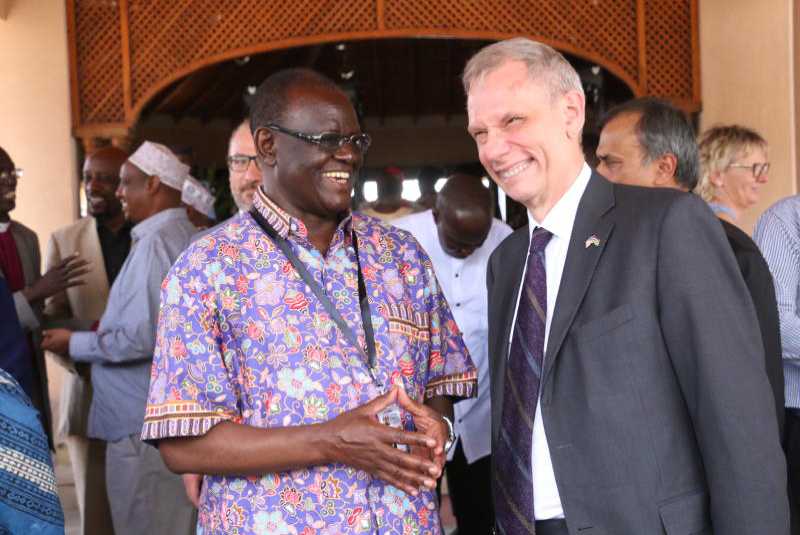×
The Standard e-Paper
Fearless, Trusted News

Meru Governor Kiraitu Murungi chats with US Ambassador Robert Godec during the inaugural ASALs conference at Ocean Beach Resort in Malindi on September 05. [Photo: Standard]
The Government's resolve to mitigate the effects of drought in arid and semi-arid lands got a boost of Sh3.1 billion from the European Union.